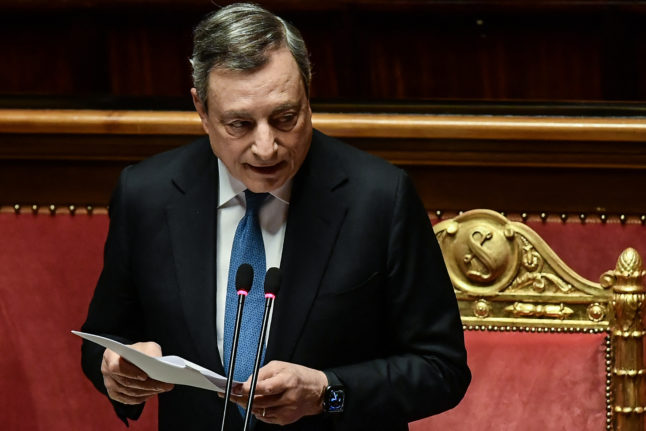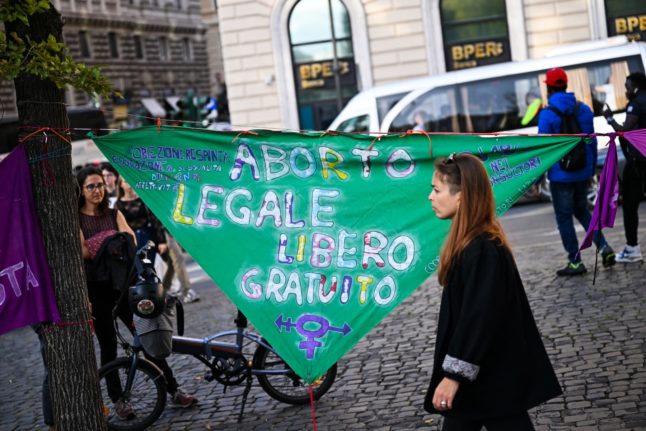On Friday morning, Italy woke to political turmoil amid an unprecedented government crisis that has put Mario Draghi’s future as prime minister in doubt and raised the spectre of snap elections.
“Draghi resigns, Italy risks chaos,” read a headline in newspaper La Stampa.
Draghi had attempted to resign on Thursday night, following through on his promise to do after losing the support of the Five Star Movement, a major party within his coalition government.
But President Sergio Mattarella, who acts as kingmaker in moments of political crisis, refused to accept the prime minister’s resignation – instead urging Draghi to address parliament next week in an attempt to find a way forward.
READ ALSO: Italy’s president refuses to accept PM Draghi’s resignation
Until then, the government remains in limbo with no clear path forward.
Industry heads said they were “speechless” at the “show of total irresponsibility” by the government.
“We are watching with total incredulity the political developments that clearly ignore the commitments that the government has taken on… with the emergency of the international situation and the lead role the Italian government has in Europe and in NATO,” Carlo Bonomi, president of industrial confederation Confindustria, told news agency Ansa.
European Economy Commissioner Paolo Gentiloni said he was following the situation in Italy with “concerned astonishment”.
“When it comes to political developments in Italy, I often talk about rough waters,” former Italian premier Gentiloni told Ansa.
“In these waters made rough by war, high inflation, energy risks and geopolitical tensions, stability has a value in itself.
READ ALSO: Four scenarios: What happens next in Italy’s government crisis?
It remains unclear how the current crisis will play out, with several options from a cabinet reshuffle to snap elections put forward by political analysts.
“We have a very open-ended situation, the pressure is going up, there’s lots of diplomatic work taking place behind the scenes and we still have four days to go,” Policy Sonar analyst Francesco Galietti told AFP.
Although political crises are nothing new in Italy, “this one is unprecedented because geopolitical factors are taking precedent”, Galietti said, citing tensions with Russia over its war in Ukraine.
Politicians and experts view the possibility of Draghi continuing in his mandate as extremely fraught, even though he technically has the numbers to survive a confidence vote with or without Five Star.
“The Draghi government and the coalition that supported it must continue, but right now I see it as very, very difficult,” former Five Star leader and current Foreign Minister Luigi Di Maio told RTL 102.5 radio on Friday.



 Please whitelist us to continue reading.
Please whitelist us to continue reading.
Member comments